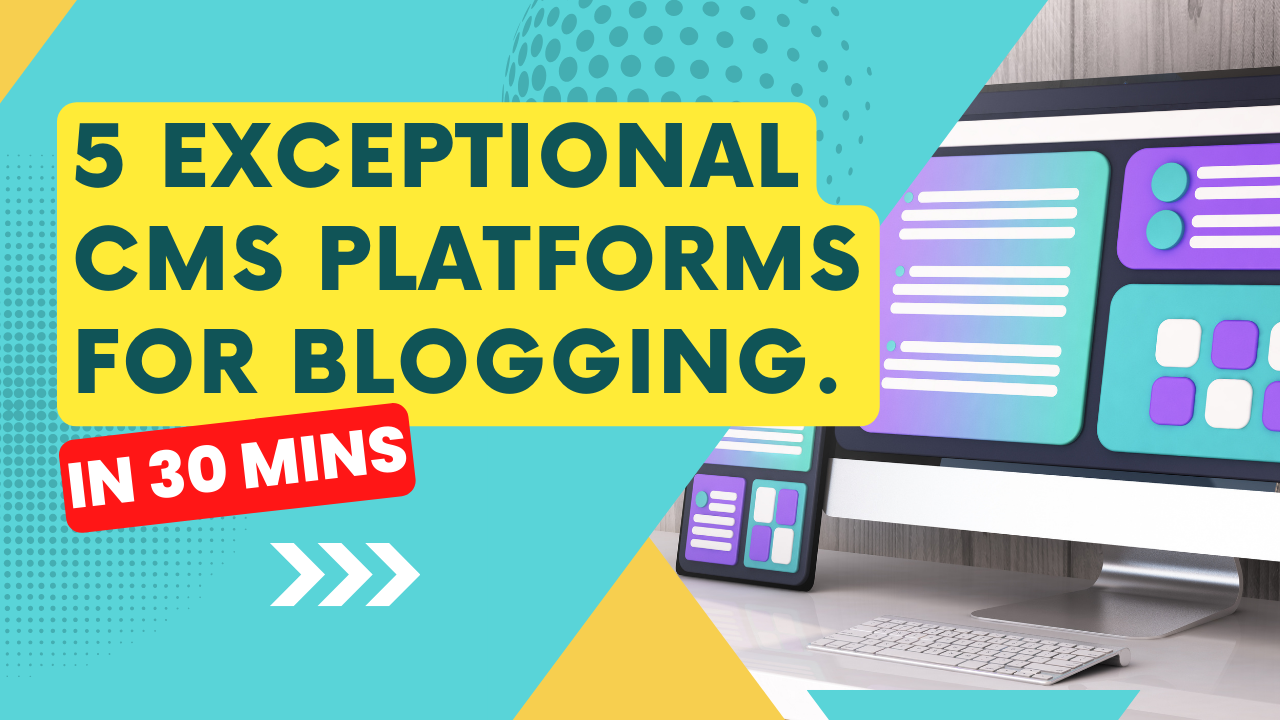Introduction:
When it comes to content management systems (CMS) for blogging, WordPress has long been the reigning champion. However, there are several alternative CMS platforms that offer unique features, flexibility, and performance that might suit your blogging needs even better. In this blog post, we will explore five CMS options that stand out as strong contenders, providing a fresh perspective for bloggers seeking a robust and user-friendly platform.
1. Ghost: A Simpler Alternative
- Key Features:
- Focus on content creation.
- Clean and minimalist interface.
- Markdown-based editor for simplicity.
- Integrated newsletter functionality.
- Why Choose Ghost:
- Ghost is designed with a singular focus on publishing content, making it an excellent choice for bloggers who prioritize writing and storytelling.
- Its intuitive editor, built with Markdown, ensures a distraction-free environment, allowing writers to concentrate on their craft.
2. Joomla: Power and Flexibility
- Key Features:
- Extensive customization options.
- Multilingual support.
- Robust user permissions.
- Active developer community.
- Why Choose Joomla:
- Joomla is a versatile CMS that caters to users seeking a more complex and adaptable platform. It's suitable for bloggers who want the freedom to customize their website extensively.
- The platform's powerful user management and permission features make it an excellent choice for larger websites or multi-author blogs.
3. Strapi: Headless CMS for Developers
- Key Features:
- Headless CMS architecture.
- Open-source and customizable.
- API-driven content delivery.
- Suitable for developers and tech-savvy users.
- Why Choose Strapi:
- Strapi's headless architecture allows for decoupled content management, providing flexibility in content delivery across various platforms.
- Developers can leverage Strapi's open-source nature to customize and extend its functionalities, making it a great choice for those with coding skills.
4. Contentful: Cloud-based Headless CMS
- Key Features:
- Cloud-based and scalable.
- Headless CMS with API-first approach.
- Real-time collaboration.
- Integrations with various third-party services.
- Why Choose Contentful:
- Contentful is a cloud-based, headless CMS that excels in scalability and flexibility. It's an ideal choice for bloggers looking to build content-rich applications beyond traditional websites.
- With real-time collaboration features, Contentful streamlines the content creation process for distributed teams.
5. Wix: All-in-One Website Builder
- Key Features:
- Drag-and-drop website builder.
- Hundreds of templates.
- Built-in hosting and domain services.
- App market for additional functionalities.
- Why Choose Wix:
- Wix is an excellent option for bloggers who prioritize ease of use and want an all-in-one solution. Its drag-and-drop builder simplifies website creation, making it accessible for beginners.
- With a vast library of templates and an app market for added functionalities, Wix provides a comprehensive ecosystem for bloggers.
Conclusion:
While WordPress remains a dominant force in the CMS landscape, these five alternatives offer unique features and cater to different needs. Whether you value simplicity, flexibility, developer-friendly environments, or all-in-one solutions, exploring these CMS platforms can lead to a blogging experience tailored to your preferences. Evaluate your requirements, try out a few platforms, and choose the one that aligns best with your vision for a successful blog.

